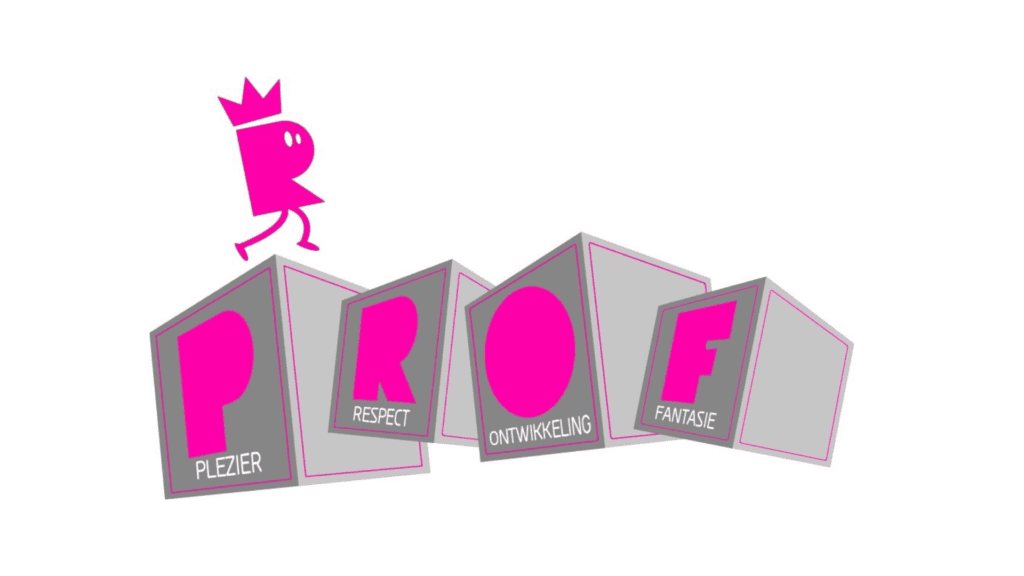
Our line of approach
We have a clear vision of children at KinderRijk. Our educational staff lay the foundation of our educational quality standards. Their knowledge of children, love for their profession, years of experience and the four educational principles PROF: (p) Fun, (R) Respect, (O) Development and (F) Fantasy, are the primary factors in their work. Our daily actions are based on these four concepts.
P – Fun comes first
Fun is the key at KinderRijk. There’s a good reason why Fun comes first and is the greatest aspect. Is the child having fun, does he or she feel good? We know from science that only children who feel safe have an outward look, they go out to play and explore, thereby acquiring new knowledge and skills.
This emotional safety is called fun and for us it’s an absolute prerequisite for the other three principles (respect, development and imagination) to blossom.
This is why we first build a safe relationship between the children and the educational staff member and provide structure in the day, so children know where they stand. This creates a steady order of activities and projects throughout the day. This predictability is not only essential to the youngest children, but also to the older children at after-school care. It’s really nice to participate in activities in different areas and discover what you are good at and what you enjoy doing.
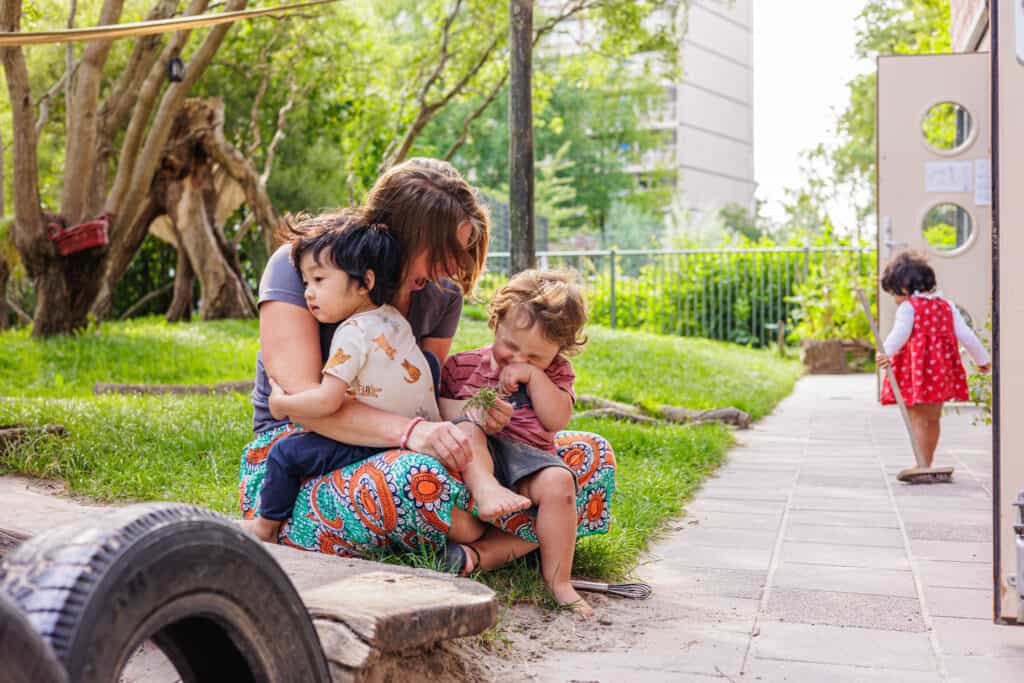
R – Respect for nature and each other!
Children need to learn the agreements made in society, its standards and values in order to function properly. Here with us, children are surrounded by other cultures and the diversity of our society. Respect for yourself, others and the environment is an element in this. We provide structure and boundaries in a fun and natural manner, for example by being nice and taking other children’s feelings into account. This increases self-esteem. No matter how small a child is, a child is a unique person with his or her own needs and wishes. We respect each child’s individuality and are open to children’s ideas.
We interact with each other in a respectful manner. This is an essential aspect to a positive self-image and self-esteem. Standards and values are translated into agreements in the group. At the same time, we watch and listen carefully to the things children are engaged in and inspired by. We give children space.
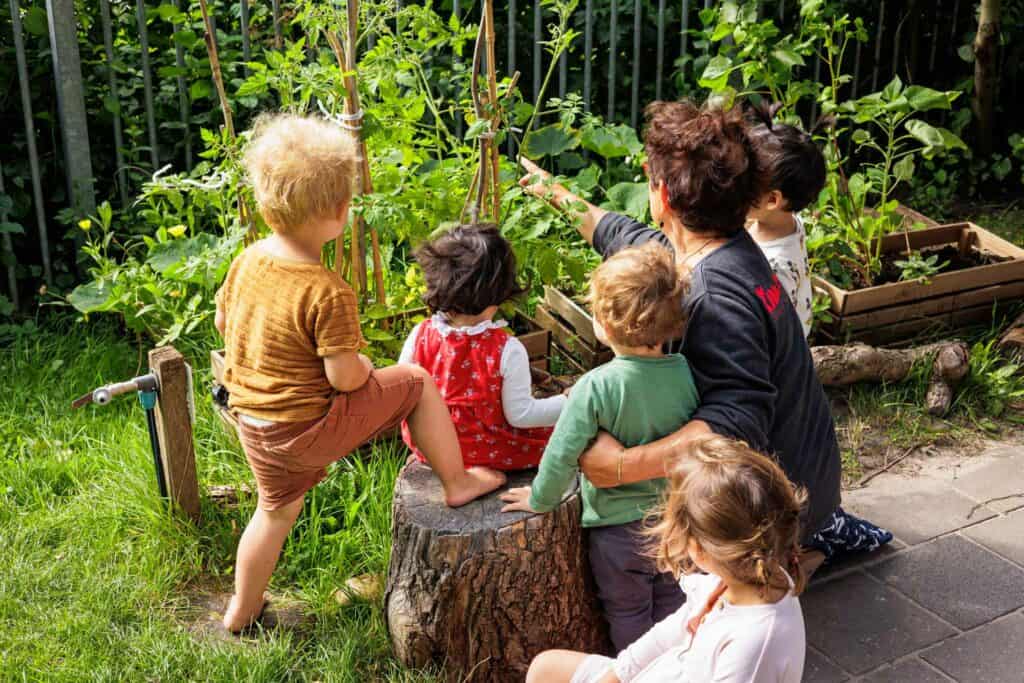
O –Development of personal competences
We provide children with a rich play and learning environment covering all areas of development. In addition to free play, we provide various activities throughout the day while we line up with the child’s development. We observe the children and assess the child’s level of development and ensure that they are further inspired. In this way, we help children master skills such as independence, perseverance, flexibility and willpower. This helps increase children’s self-confidence.
In short, the educational professionals provide a rich play and learning environment with various activities appropriate to the child’s development.
We focus on the following seven developmental areas in our offering of activities:
- Social-emotional
- Language skills
- Creativity
- Motor
- Technology, measurement and arithmetic
- Perception of nature
- Music and dance
For example, social-emotional development comprises role-play in the home corners or collaboration games, while perception of nature comprises Mud Day, hut-building and tracking.
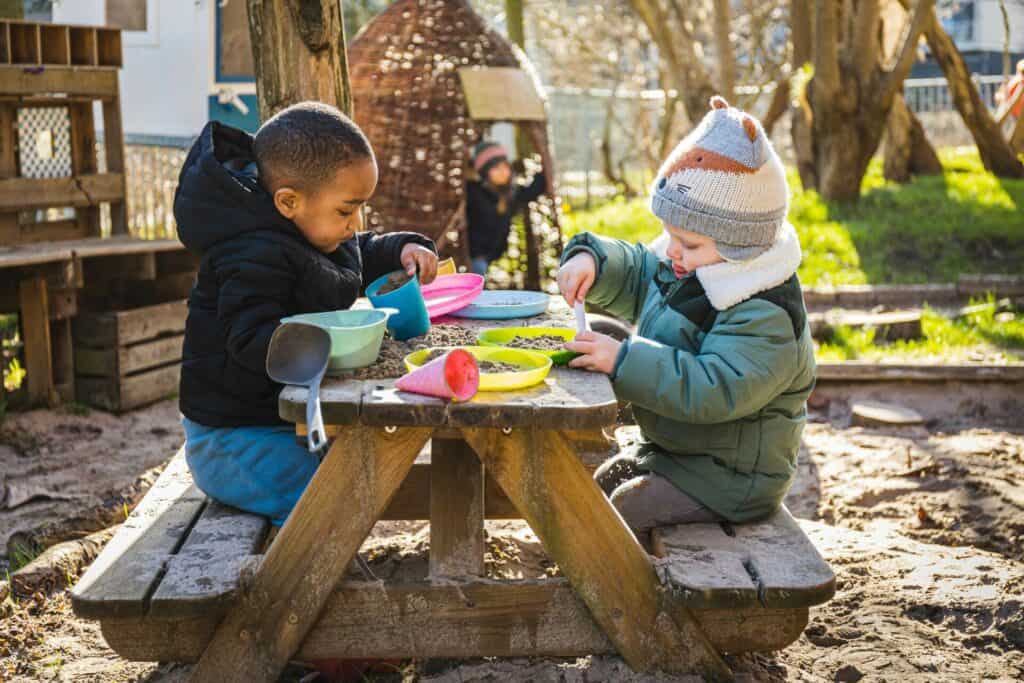
F – You can do anything in your Fantasy!
You can fly, have a pool full of chocolate custard or turn sand into magic dust. Children who are absorbed in their fantasies are able to process their experiences and emotions mentally. And, of course, they enjoy the moment. By encouraging fantasy in play and activities, children develop into creative thinkers and solvers.
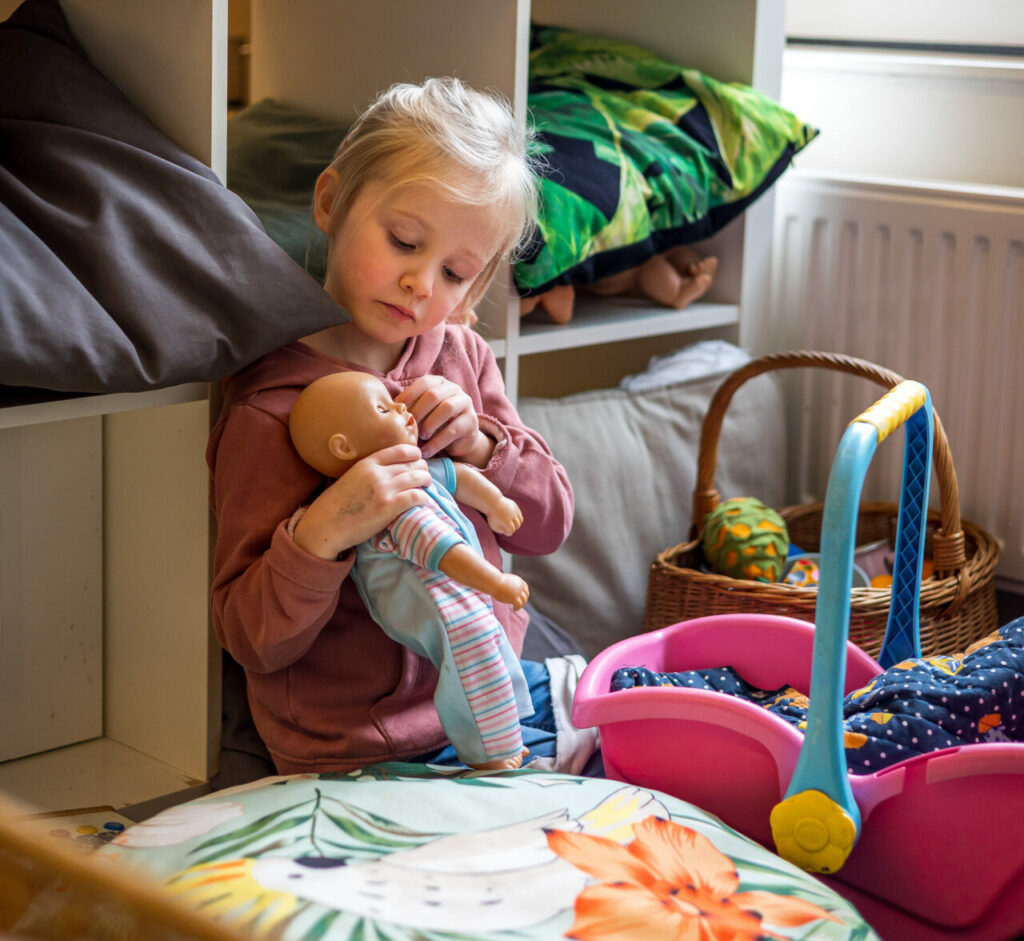
PROF into practice
Curious about how we put these 4 pedagogical principles into practice? Maxime, who has been a childcare professional at KDV Kindercampus King for 8.5 years, shares her insights in her blog. A little teaser? Sometimes, it’s as simple as a child showing up with a pot on their head!
